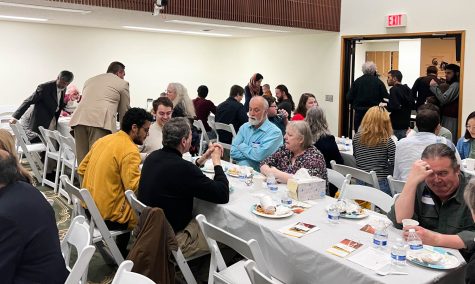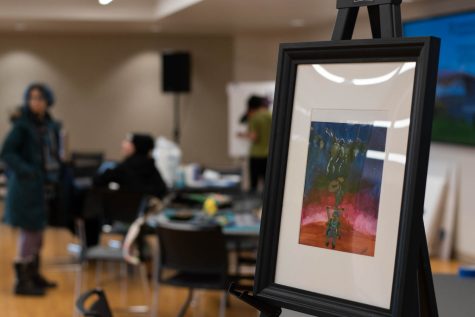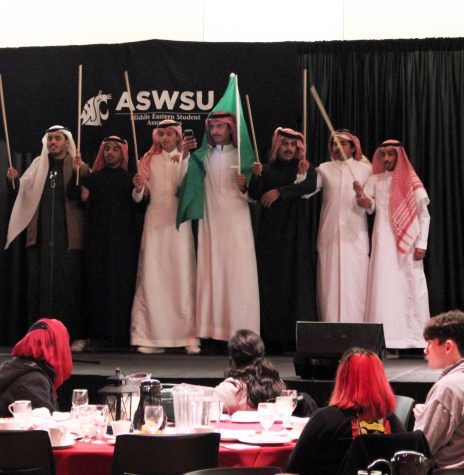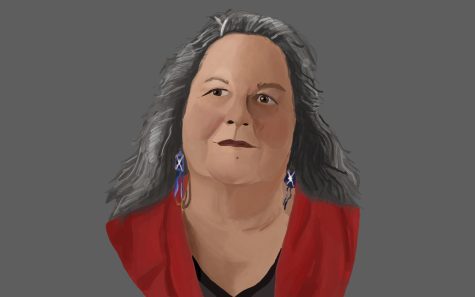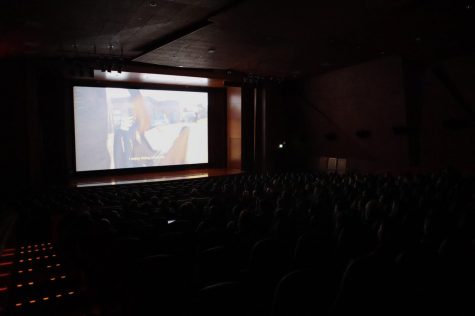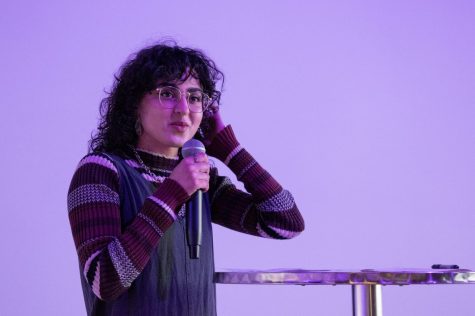Distinguished poet to visit WSU and conduct readings
April 10, 2017
From incidents with nail guns to love affairs with the breeze, a poet coming to WSU for the Visiting Writers Series captures the human experience.
Distinguished poet Robert Wrigley will be reading from his new book, “Box,” as part of the series, in which WSU brings poets and writers from around the country to collaborate and engage with students.
Wrigley graduated from the University of Montana with his Masters of Fine Arts in poetry. He recently retired as professor emeritus at the University of Idaho and lives in Moscow with his wife, writer Kim Barnes.
His work has been featured in The Atlantic Monthly and The New Yorker. Wrigley has won five Pushcart Prizes, Poetry Magazine’s Frederick Bock Prize, and the J. Howard and Barbara M.J. Wood Prize, among other awards.
Some of Wrigley’s poems include “Mishap With a Nail Gun” and “I Like the Wind,” which was published in The New Yorker.
“Bob [Wrigley] is in my estimation and, I don’t think I’m exaggerating here, one of the very finest poets we have working in the English language right now,” WSU English professor Peter Chilson said.
WSU English professor Debbie Lee helps with organizing the Visiting Writers Series.
“[Wrigley is] what I like to think of as master of the finely-observed detail,” Lee said. “His poetry encourages us to observe more closely the world around us in ways that we normally don’t do. We walk through the world in a different way once we do that.”
Wrigley is known for his expressive and powerful readings, following in the footsteps of his University of Montana mentor, Richard Hugo, Chilson said.
“Every chance I get, I will go and listen to his readings because of the way he uses the language and connects with it on a personal level while verbalizing it,” Chilson said. “I’ve seen very few writers do that.”
Wrigley is known not only for his readings, but also for being a great teacher and having a down-to-earth nature. Chilson ruminated on the time he rode through the University of Idaho and saw Wrigley there.
“He was … leaning against the railing and talking with students like it’s the most natural thing in the world,” Chilson said. “He has this modesty and accessibility that’s hard to find in most writers. I was just thinking ‘wow, there’s this celebrity in writer’s terms, and he’s outside his office talking to his students like any other regular Joe’.”
Much of Wrigley’s work showcases landscapes and the natural world. Despite that, Wrigley insists he is not a nature poet.
“I write about the natural world because I live in the middle of the natural world,” Wrigley said. “If we don’t leave home or go to town, we see many more deer than people. What I’m most interested in is what it means to be human, what it means to be alive and what it means to feel and to live according to your senses.”
His new book of poetry, “Box,” was released on March 28 and focuses on the idea of containment.
“We are contained by everything, by all aspects of our identity, gender, race, age, you name it,” Wrigley said. “We are also contained by where we live and we are contained by how we think and what we do. And yet the book is, as most poetry is, meant to challenge that containment.”
Wrigley said poetry is hardwired into the human consciousness. There is no culture on earth that does not have something that resembles poetry, he said.
“When you finish reading a book of my poems, you should know more about yourself than you do about me,” Wrigley said. “Poetry doesn’t show you anything new. It shows you what you already know in a way you never thought.”
The reading will take place at 5:30 p.m. today in the Bundy Reading Room.
“If you were a poet that everybody liked, that would be like a fate worse than death,” Wrigley said.












